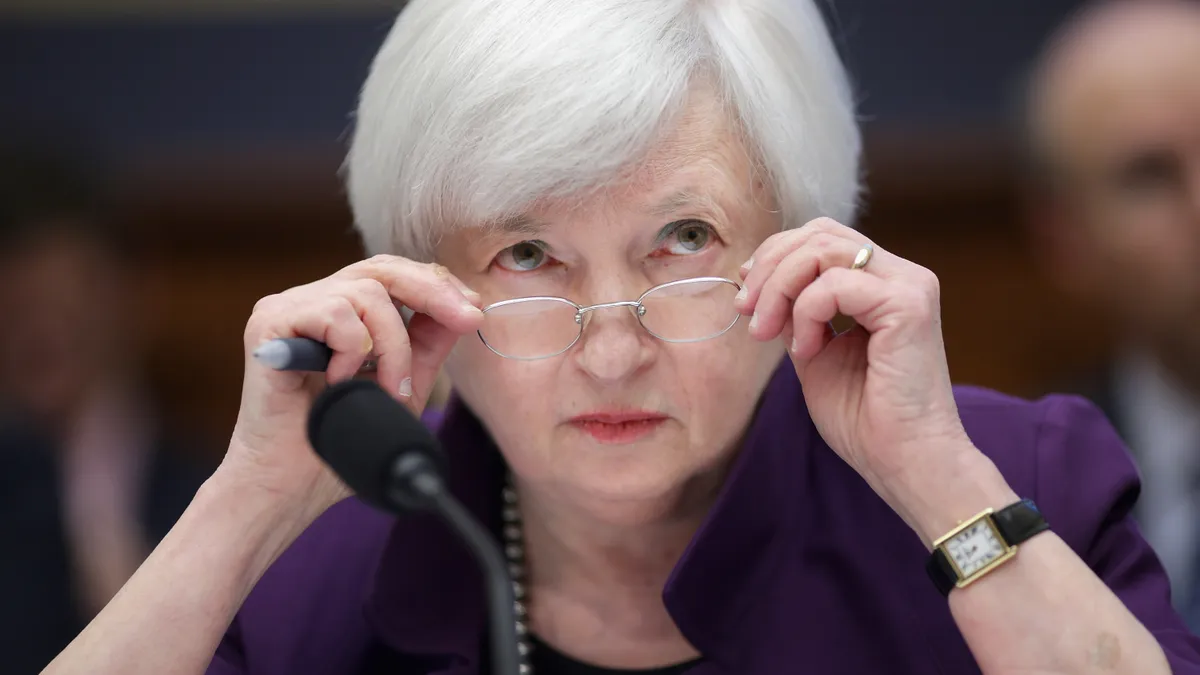New guidance adopted by the Financial Stability Oversight Council on Friday will allow regulators to better oversee nonbank institutions like hedge funds and asset managers that may pose risks to the U.S. financial system.
The FSOC finalized an update proposed in April, reversing prior guidance that made it harder to designate — and regulate — nonbank systemically important financial institutions. The new rule empowers regulators to proactively designate nonbank SIFIs and then subject them to higher regulatory standards.
“Financial stability is a public good, and we need a robust structure to monitor and address the build-up of risks that could threaten the financial system,” Treasury Secretary Janet Yellen said in a prepared statement.
“Congress created [the] FSOC ... to identify and respond to risks to financial stability, and our actions today go to the heart of fulfilling that critical mission,” she said. “Establishing an analytic framework and a durable process for the Council’s use of its designation authority will strengthen our ability to mitigate the risks of financial crises that can devastate businesses and households.”
The FSOC was created by the Dodd-Frank Act, following the 2007-08 financial crisis, with the purpose of designating and regulating SIFIs. It’s made up of the heads of the nation’s financial regulatory authorities, including the Office of the Comptroller of the Currency and the Federal Reserve.
"When large, interconnected financial companies failed in 2007 and 2008, stress spread through the financial system and then to the real economy," Yellen said at an open session, according to American Banker. “Recent stresses in some financial sectors arising from the onset of the pandemic and the sudden failures of some regional banks underscored the continuing need to remain vigilant to threats to ensure the resilience of the financial system and our economic strength.”














